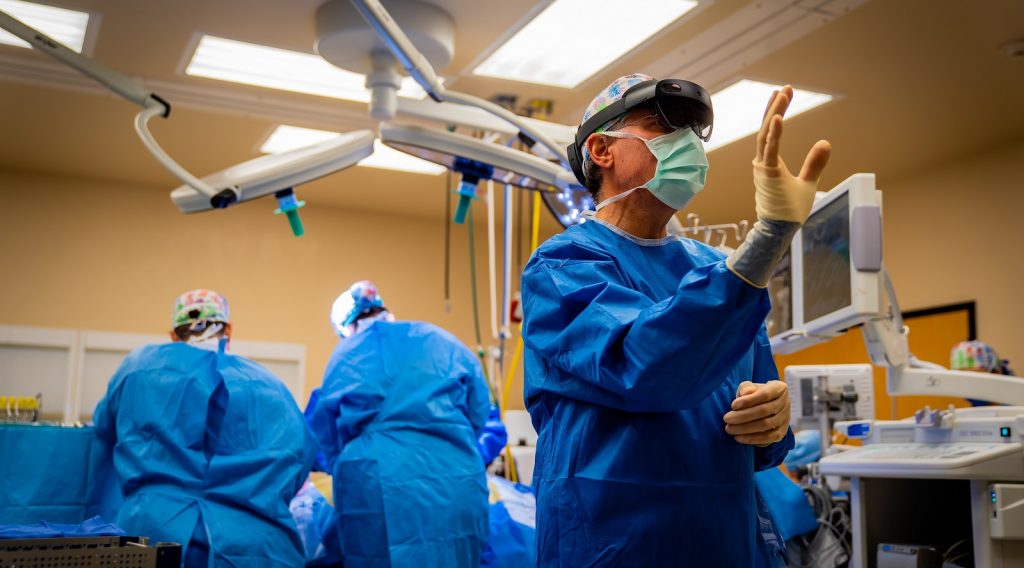South Africa is taking part in an innovative global event that sees 15 surgeons from 13 different countries integrate mixed reality headsets into their operations.
The South Africa surgery is being led by Professor Stephen Roche from Groote Schuur Hospital and the University of Cape Town (UCT).
No ad to show here.
The surgeons used Microsoft’s HoloLens 2 to record and integrate mixed reality software into their orthopedic operations.
These pre-recorded operations have been shared as part of a 24-hour global event showcasing the way that mixed reality can be used in medicine.
Professor Roche participated in three of the 13 surgeries in the event. He led the surgery in South Africa – and assisted in two surgeries in France and Germany.
“We are all trying to solve some of the problems of shoulder replacements from different perspectives, and this allows us to share our knowledge in real-time. I think it has been a fantastic opportunity to show shoulder surgery in South Africa to the world,” Roche said about participating in the event.
Countries taking part include France, Germany, the United States, Brazil, India, the UK, Belgium, the United Arab Emirates, Bolivia, Mexico, Morocco, and Ukraine.
Mixed reality headsets in surgery
Using the HoloLens 2 provided a few benefits to surgeons, Microsoft notes.
This included the ability to visualise and operate the surgeries using holograms.
Surgeons can also share a real-time view of the surgery and leverage the technology to train or consult peers remotely.
Professor Thomas Grégory of the Avicenne AP-HP Hospital in France conducted the first-ever mixed reality surgery in December 2017.
And it was he who virtually collaborated with global counterparts using the HoloLens 2 for this initiative.
In a discussion with media, Professor Roche noted that learning how to use the headsets was not too technically challenging.
Due to the pandemic, the initiative cancelled the planned in-person training. Rather, Roche says that those participating were given resources and support from France.
Using this, surgeons taught themselves how to use the headsets.
Roche also notes the potential of mixed reality headsets as a surgical teaching tool, giving surgeons the ability to access surgeries from a hands-on viewpoint from other hospitals around the country.
The pandemic, in particular, highlighted this potential due to the suspension of elective surgeries. This limited the exposure of trainees surgeons to different operations.
How to follow the mixed reality and holographic surgeries
You can view the surgeries, along with roundtable discussions, on the Microsoft Experiences website.
The site gives access to a live stream of the event, as well as an agenda of surgeries.
The pre-recorded surgeries will air between 9 February and 10 February.
Feature image: John Melancon/Burning Stick Creative, supplied by Microsoft.
Read more: Cape wine farm adapts to pandemic with virtual wine tastings, tours
